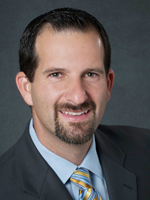Florida lawmakers are working on proposals that would allow parents of children with developmental disabilities to put state education funding to use beyond the traditional public school system – and even beyond private, virtual or other school choice options.

The proposals being considered in the House and Senate resemble the “education savings accounts” that have started getting attention around the country, but they would be available only to certain children with special needs.
Parents of children with conditions like autism, spina bifida or cerebral palsy would be able to use “personalized accounts for learning” to cover expenses like therapy, private tutors or a specialized curriculum. Under a bill already filed in the Senate, they could also use the funds to start saving for college.
While the McKay Scholarship program can allow disabled students to attend public or private schools of their choice, disabled children’s needs often extend beyond the “in-school component” of their education, House Choice and Innovation Subcommittee Chairman Mike Bileca, R-Miami, said during a hearing on the proposal Tuesday.
“For some students, a full day at school may not meet their education needs, and the parents have the most valuable perspective and insight into what their children need,” he said.
Ashli McCall, one of two parents who testified in favor of the proposals, told the committee she is the mother of a 15-year-old with Asperger syndrome. She said her son would be stymied by a “total sensory overload” in a traditional public school setting. She said he responds best to one-on-one instruction at home, but could benefit from having more access to therapists.
“If we had had the funding to support the needs of my child at an earlier age, we may have had more success in his academic achievements,” she said. “He struggles with so many issues which interfere with his learning that his academic process has been hindered.”
Rep. Joe Saunders, D-Orlando, wanted to know whether a program creating individual accounts funded by the state would face “constitutional challenges.” A 2006 state Supreme Court decision struck down the state’s Opportunity Scholarships, a voucher program for students in low-performing schools. The ruling but did not apply to the state’s McKay Scholarship program.
Other members of the House panel, including Rep. Bill Hager, R-Delray Beach, said they wanted to ensure that parents participating in the program would not get “ripped off by shoddy providers.”
Proposals for education savings accounts available to all students have surfaced in the Florida Legislature in recent years, but did not get much traction. It remains to be seen whether this year’s narrower versions will fare differently.
Bileca said he would consider changes to the House’s initial proposal before it gets translated into a final bill.
The Senate version was filed last week by Kelli Stargel, R-Lakeland. It also includes provisions aimed at helping more students with disabilities graduate from high school with a standard diploma and continue to college or industry-certification programs.
“We’re putting an emphasis in our system on bringing the most out of these children,” Stargel said in an interview.



[…] fight to bring vouchers to Tennessee. Close by (and following close behind Mississippi), Florida is taking a look at Education Saving Accounts for special-needs […]